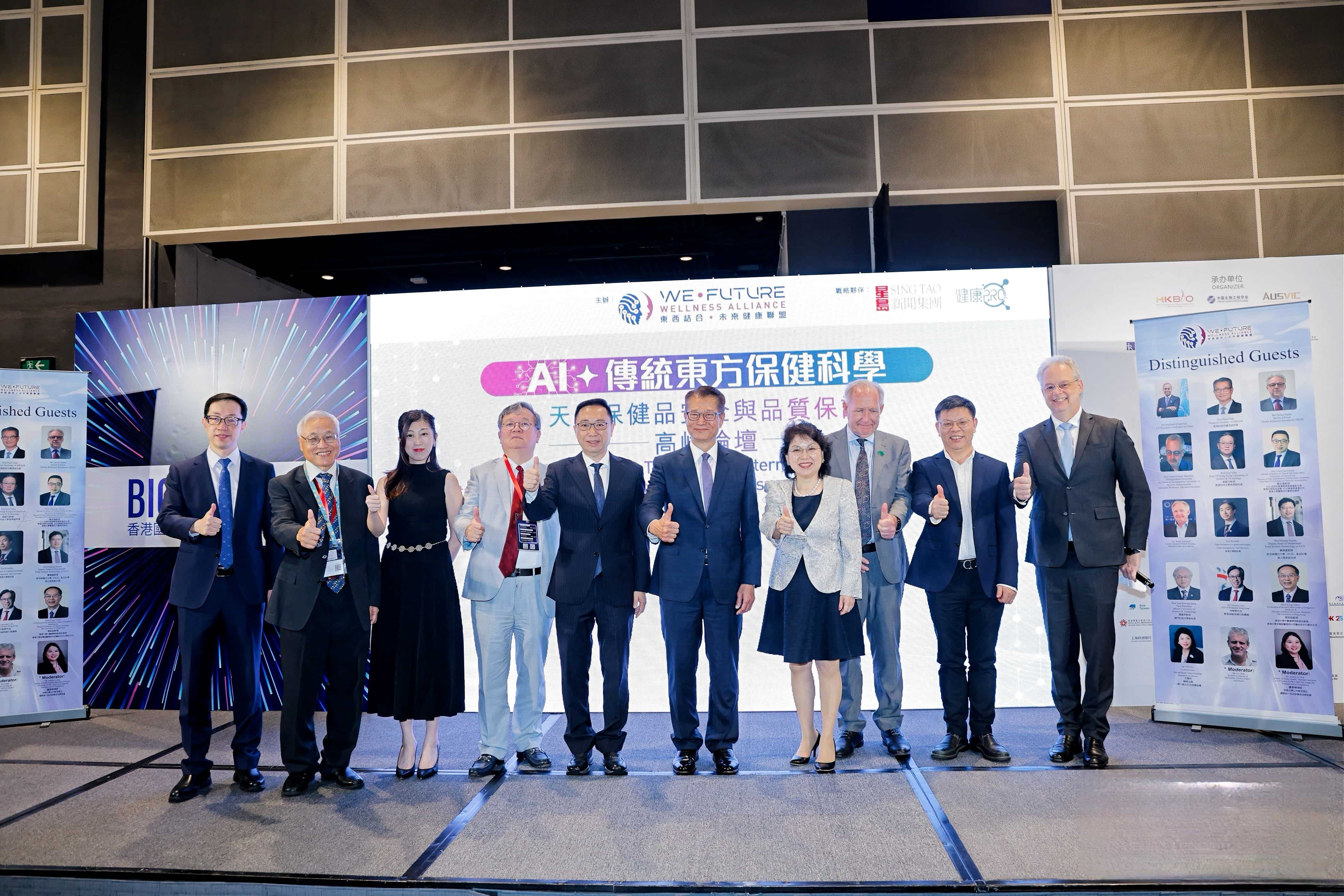
Hong Kong is nurturing industries with strategic advantages, especially biotech and artificial intelligence (AI), and is home to over 4,700 startups and nearly 20 unicorns, Financial Secretary Paul Chan Mo-po said on Thursday.
“Over the past two years, more than 80 enterprises have established a presence in Hong Kong, investing over US$6.5 billion and creating some 20,000 quality jobs,” Chan said, during the opening ceremony of the Biotechnology Investment Forum of BIOHK2025 — the annual flagship biotech convention.
Following the opening ceremony, discussions took place at five venues on topics that included the modernization of traditional Chinese medicine (TCM), AI-driven pharmaceutical development, cell therapy, and data infrastructure of life science.
READ MORE: Officials: Life and health technology a strategic industry for HK
A sub-forum on the latest developments in Eastern healthcare and how AI has speeded up the diagnostic process also drew attention.
Titled “AI to Empower Traditional Eastern Health Care: Natural Health Food, Its Safety and Quality Assurance for Global Availability”, the forum was organized by Chunyuan Chiang, adviser to the University of Hong Kong’s School of Chinese Medicine, and co-chaired by DJ Clark, executive director of multimedia at China Daily Asia Pacific.
“We are living in an age where Western and Eastern medicine meet. It is a trending topic, especially after COVID-19, because during the pandemic, many people around the world benefited from these traditional therapies,” Chiang said in an interview with China Daily.
United Nations Resident Coordinator in China Siddharth Chatterjee, in a video message, stressed the importance of harmoniously combining ancient health practices with modern technology to foster comprehensive well-being.
“We must marry the wisdom of the past and the technology of the future. Let us commit to these ancient practices, to the moving meditation of yoga and the flowing energy of chi, the power of our breath,” he said.
READ MORE: Global standards help boost TCM, Hong Kong forum hears
Tam Kwong-Hang, vice-president of Macau University of Science and Technology, said that AI is transforming healthcare and can revolutionize the way medical professionals diagnose and treat patients.
“AI algorithms can analyze large amount of complex medical data, identify patterns and trends, and provide insights that help physicians make more informed decisions,” he added.
Yike Guo, vice-president of Hong Kong University of Science and Technology, said that if you visit hospitals, especially in Shanghai and Beijing, you will find that they have started using tools that allow you to communicate your symptoms to robots, download your medical records — including your medical images — and then the machine will perform a full analysis and update your electronic patient records.
The speakers also discussed the development of Hong Kong’s innovation and technology ecosystem and how it supports the biotech value chain, from research and product design to commercialization and market expansion.
Contact the writer at irismuk@chinadailyhk.com


